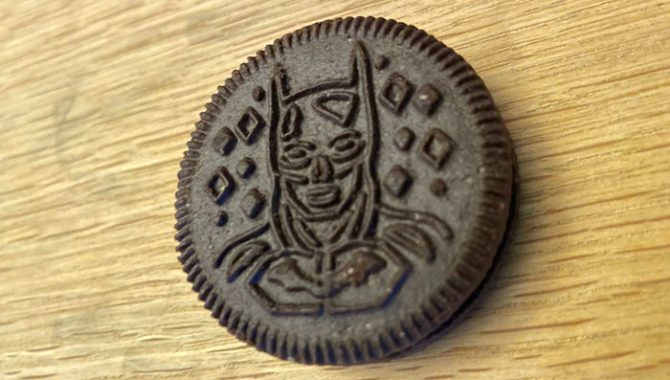—-
To stay in the loop with the latest features, news and interviews from the creative community around licensing, sign up to our weekly newsletter here

Prompted by an article bemoaning the amount of tie-in promotions around The Batman, Start Licensing’s Ian Downes explores this space, with the help of Snowball Effect’s Nikki Beckett, SGLP’s Simon Gresswell and Innovation Design Hub’s Paul Conisbee.
When I first started working in licensing in the early 1990s, I joined Copyright Promotions – or CPL as it was known. CPL were a leading player in a licensing market which was less developed than today’s market, and they had an enviable roster of rights under their representation. This included companies like Hasbro for properties like Monopoly and Cluedo, through to movie studios like Twentieth Century Fox and Universal.
CPL pioneered building a sales force staffed with category experts who managed specific parts of the market. My initial role was to manage Adult Publishing. As we were located on the edge of Soho, my job title raised a few eyebrows from time to time!
CPL’s management recognised a value in having focused sales personnel who knew a category, selling to people in that category. Most often, the CPL team had been recruited from that category; I had four years publishing experience before getting my job at CPL and felt I knew the category well.
This policy extended into other categories, most notably that of advertising and promotions. CPL had three people who dealt exclusively with the promotions category and they worked with two others who dealt with the food industry. At the time, food and drink companies were heavy users of licensed promotions, with a particular emphasis on promotions linked to major movie releases. This category yielded high value deals and ones that were very high profile.
At the time, companies like Kellogg’s, KFC, Weetabix, McDonald’s and Quaker were all heavy users of licensed promotions. Often they would compete with each other to secure the rights and high fees were paid. It was a very different time! I remember back when I was working at Fox Kids that we had nine sales promotion partners in the UK for Digimon in one year.

Over recent years, the dynamics of licensed promotions have changed. Legislation and changes in approach to brand management have meant that there is less demand for licensed promotions. A further factor is that many film companies have changed the way they work with brands.
In the 1990s, rights owners and agencies like CPL effectively sold promotional rights to the highest bidder, but this was really for only the most in demand high profile movies: the blockbusters. Film companies saw a financial benefit from these partnerships and got fantastic exposure for their films. They felt that more of their films could benefit from such exposure but realised that not all films are created equally in the promotions world.
Some films didn’t command licensing fees so often the film company would enter into barter-type deals with brands granting promotional rights for free in exchange for brand exposure. Overtime this seemed to become the norm and there was significant deflation in the market. This has impacted the overall use of licensed promotions.
Against this backdrop, it was quite interesting to see the promotional activity associated with the latest Batman movie. Indeed, my interest in this was piqued on a visit to Caffe Nero. When buying my coffee, I noticed they were on board with The Batman. Their activity included branded coffee cups, in store signage and an app-based promotion linked to their rewards programme. This made me look into The Batman and its promotions a little more deeply.

It was clear that there were a raft of promotional partnerships in place, including ones with Nissan, Oreo and Ring. In many ways it felt a bit like a 1990s style movie promotion programme, and some of these partnerships were global ones. If a film franchise is a global one, like Batman, it can open up a bigger pool of potential partners and help create more sophisticated promotions as brands can amortise costs across more markets.
Interestingly the Batman promotional roster and campaign wasn’t without its critics. Most notably an article in The Guardian was quite critical of the programme. Journalist Stuart Heritage wrote:
“Increasingly, if you make a movie based in the world of Batman, you can expect to win an Oscar. This film is going to be a Serious Piece of Cinema. And yet for some reason its marketing campaign is treating it like Sonic the Hedgehog. Right now, there is no product on Earth that The Batman won’t hitch itself to for a quick buck.”
It was encouraging to see licensing and promotions discussed in a national newspaper, albeit with a measure of cynicism. That said, the licensing industry would be ill advised not to listen to criticism and an outside observer’s take on things.

On the back of this Guardian article, which can be read here, we asked a few promotions and licensing industry experts for their views on the Batman programme and the wider subject of movie promotions. We also asked them to give us an insight into the mechanics of organising a movie promotion.
There are lots of things to consider when brokering these kind of deals, including challenges around confidentiality, availability of artwork and production lead times. It is almost as difficult as making a perfect cup of coffee!
First up is Nikki Beckett. Nikki runs marketing agency Snowball Effect, helping rights owners connect with brands and developing partnerships.
 Nikki, in your experience, how do movie companies go about selecting promotional partners for film releases?
Nikki, in your experience, how do movie companies go about selecting promotional partners for film releases?
They want to team up with brands who are appeal to the same target audiences and who are well matched when it comes to size, scale and personality. Movie companies prioritise the brands who can offer them the widest audience reach, seeing their channels as additional media value – including on pack promotions, branding in shop windows, digital platforms and live events. They also consider the themes of the film and look to align with brands whose character and creative track record allow them to bring those stories and themes to life as creatively and authentically as possible too.
In terms of the partners secured for The Batman, and the criticism in the Guardian article, I see it differently… The amount of exposure generated in the UK has been impressive. I’ve spotted a fair amount of partner activity for the film on my travels, whereas I haven’t seen any of the main campaign as of yet.
Creatively, both the Caffe Nero and Oreo marketing teams have developed striking and engaging, immersive campaigns that feel right for their own target customers. In this instance, it makes sense to have a wide and diverse campaign, especially with the wider Batman franchise appealing as much to boys under 11 years old as middle-aged adults. So, of course the film studio will look to engage different fan groups through different types of partners to maximise the excitement and revenue prior to release.

How far ahead do you have to engage with brands to deliver partnerships? What are the challenges around this?
I would always advise film companies to plan 18 months out in order to brief brands ahead of their annual planning cycles – and to give campaigns the best chance of unlocking strategic level budgets for bespoke products, TV ads and premiums and so on.
The one difficulty with this early pitching is that generally movie assets are scarce that far out, making it more challenging to pitch with very limited assets. I think this is where well-established franchises have an advantage as they are a known entity and this reduces risk for partners. It’s one reason why franchises do so well in the partnerships sector.
How would you persuade brands to get more involved in movie promotions? What are the benefits?
The benefits vary from partner to partner depending on their core objectives, but there is always a valuable halo effect being part of the momentum in the run up to release. When the brand’s own story can be amplified further by an alliance with the film, that’s when partnerships work most successfully and we don’t need to try too hard to persuade brands in those instances.
What’s been one of your favourite movie promotions of recent years?
Oh my goodness, there are so many fantastic alliances! One of my recent favourites is the lovely charitable partnership between Aardman Animation and RSPB for the launch of their half hour Robin Robin film on Netflix. It was a fully integrated and authentic alliance that inspired families to connect more with nature – and in particular Robins!
Activities included family winter nature trails at RSPB reserves nationwide, a communications campaigns teaching families all about how to look after the Robins in their own gardens over winter and the creation of some Robin Robin-inspired fundraising merchandise.

This partnership was delightfully playful, with Netflix renaming themselves Nestflix for the day of launch and linking to a live Robin bird feeding station at one of the reserves with over 1.4 million views. Bird seed was given away to families so they could feed Robins over winter too. The alliance has been so successful that they want to continue working together in the future, giving this activity a longer lasting legacy too.
Finally what are you working on at the moment movie wise?
We’re currently working on two family film launches for 2022: The Railway Children Return for StudioCanal, due for release cinemas on July 15th, and The Amazing Maurice for Sky Cinema later in the year. If anyone wants to find out more about either release, then do get in touch!

Next up is Simon Gresswell. Simon runs SGLP, a successful licensing and promotions agency that in recent years has specialised in sports related campaigns. Simon has substantial experience of licensed promotions, with the unique perspective of having been an agent, a rights holder and a licensee.
 Simon! Have you seen The Batman and its associated promotions? If so, what do you think?
Simon! Have you seen The Batman and its associated promotions? If so, what do you think?
OK, so full, dark knight disclosure… I haven’t seen the movie yet, but my daughter and her boyfriend have. They’re 23 and 25 respectively and thought it was dark and a bit violent! That said, I have noticed some of the promotions because 1. They’re numerous and 2. They’re across some of the everyday promotional spaces we get exposed to en route to work, via casual F&B providers and in the supermarket.
I read the criticism from the Guardian journo… He really doesn’t seem to like the film’s tie-in with the Ring Video Doorbell. On how it works, he states: “Ring users can now download special Batman replies. This means that, should a stranger visit your house when you’re out, they’ll be greeted with a blast of Michael Giacchino’s doomy The Batman theme, accompanied by a cheery voice exclaiming: “Hello neighbour, looks like we missed your bat signal! Please leave a message!”

For me, this is only a gentle twist on an established product feature of seasonal doorbell chimes that sometimes replace the standard chime for the Christmas holidays. As these are downloadable and interchangeable by the user, I think it’s quite drole as a bit of family fun, or as a gifting item.
It’s also only continuing the relatively low-tech consumer trends of using real and fake soundbytes, and audio of recent preceding decades, such as ringtones, celebrity prank calls and now the full-blown real thing with the exponential growth of Cameo.
No-one is going to keep this forever; everyone is used to chopping and changing temporary media, tones, themes and screens… It’ll likely to mean copycat promotional offerings from other movies or entertainment media, so Warner Bros can claim a bit of a first here – unless this is done all the time and I’m so out of it not to know!
Our learned journalist friend also doesn’t seem to get the link to Papa John’s promotion with Batman-themed pizza boxes… IMHO, it’s pretty harmless media and a simple print job, so no reason not to!
Although I have to agree that the Batman chicken wings promotion does seem a little tenuous. Unless there is a chicken wings-inhaling scene in the movie, it really only seems to rely on the use of the shock of red and black as food colours to promote the chicken, or are they supposed to resemble bat wings, as some sort of ghoulish culinary twist?

Being an elite athlete, I haven’t of course partaken of the Papa John’s Black Ghost Chilli Wings and sorry, I don’t intend to. One thing I do take issue with is the apparent batmanization of the Papa John’s logo projected into the night sky. Frankly, as someone who grew up first with the comics and the animation, and then the live action TV series – dashing, double-life dynamic duo and all – this feels like stealing the crown jewels… That said, I’m not target market and am not a fan of any move away from anything classic – in this case, the silhouetted bat symbol – because I’m now a grumpy old bloke that doesn’t like icons to be changed.

He continues: “Caffè Nero has subverted the pattern a little by focusing on the Riddler. It has launched a new hot chocolate, with a mysterious new flavour. If you can guess the flavour – you can win a trip to a theme park.”
My comments here do come from first-hand experience. Not of said mystery-flavoured hot chocolate – I’m an elite athlete, don’t forget! – but of watching the trailer and visiting a Caffe Nero. The opening scene of the trailer features a cappu with a sprinkled choccy powder question mark on, so not hard to see how they dreamt up the mystery flavour concept – but the in-café UX and UI were less successful.
A member of staff told me the first mystery flavour was “rank”, so much so that word of mouth stalled sales immediately. I won’t spoil it, even though the promo may be over by now, but it was a ridiculous choice.

And away from food, what are your thoughts on some of the other promotional tie-ins?
From experience, I think I am able to set The Guardian scribe straight on his public execution of the limited-edition Batman-inspired Nissan Juke and Micra. He says: “What is so intrinsically Batman-y about this particular Nissan Juke? It has a bit of yellow under the headlights. Apparently, that’s enough.”

Well, as many of you will know from your own licensing experience, these sorts of limited-edition model runs are very often a way for car manufacturer to either use up excess inventory or showcase new models that aren’t meeting sales targets. It gets punters inside their products and said products on the road.
Test drive promos associated with car manufacturers used to be a staple promotion for movies, but the way we buy new and used cars and how they are sold has changed and been disrupted by the likes of Cazoo, Cinch et al. So it’s no surprise that Nissan are hooking up to a blockbuster release.
All that said, the Nissan Juke is – as a dear, departed mate who owned one described it – ‘the ugliest car out there, so no-one’s ever going to nick it’. So, for me, this promo is unavoidably amusing and reminds me of a top bloke. To be fair, from the back, Nissan have made the Micra look about as Batman-y as a Micra could possibly look…

What have been some of your favourite movie promotions and why?
As it’s actually 20 years since I worked on movie promos for the mighty Universal Studios, so I’ll dodge that question neatly with one thought and one little story.
In promotions, I think free can still be king. Any promo that genuinely offers something for free, has to be a winner. The difference now is what the IP owner and brand can offer… Consumer expectations are higher, experiences in the same vein as the movie may be hard to re-create and the planet is rightly a consideration when it comes to premiums and merch. It requires thought for sure.
Story-wise, this is a favourite; albeit not for the right reasons regarding promotions! Picture the scene from our team evening as CPL licensing sales execs at the premiere and after party for Judge Dredd – the Sly Stallone one!
I will never forget the ashen face of the erstwhile Marketing Director of Sugar Puffs after just five minutes of the movie… He had been sold Judge Dredd as child-friendly by us – I won’t single anyone out! – but several heads were blown to bits in the opening scene. I learned the true meaning of the word ‘flabbergasted’ that evening! The promotional advert is well worth a watch…
Finally, we asked Innovation Design Hub’s Paul Conisbee for his take on this debate. Paul is an industry expert in the promotion sector who has worked on a number of high-profile promotions over the years.
 Paul, as someone who has specialised in creating promotional premiums, do you think there is still an opportunity for movie related premiums?
Paul, as someone who has specialised in creating promotional premiums, do you think there is still an opportunity for movie related premiums?
Yes, there will always opportunity to ride the wave of a large movie; the whole Spider-Man franchise has greatly benefited from the continuous movies over the last decade or so. This is a great example of a film brand that has used promotions well and one that partner brands have tapped into effectively.
What are the benefits of running a campaign that features premiums ?
The issue used to be a real narrow cinema window. Pre-Christmas for retail was always the perfect timing but the window would close quite quickly; this made planning and campaign roll out challenging. However, cinema is now much more global with big markets like China and India part of the mix, plus streaming plays a role. This keeps movies alive for much longer during the first six months of hype around a new film and opens up promotional possibilities to a bigger pool of brands.
In recent times have you had to think more about the purpose behind premiums and look at issues like sustainability?
Yes – innovation, sustainability and durability are now key. Plastic is becoming a dirty word, but not for all the right reasons and many brands are trying to distance themselves. However, the issue is more to do with disposable plastic rather than how well item can be continued to be re used and finally recycled.
Those who look to move away from plastic now look at glass, ceramics, card, tin and so on. All of which have challenges associated with them. Others are looking for plastic alternatives, but these come with their own issues and are not that easy to recycle.
My last question Paul; given deadlines and the secrecy around movies, how easy is it to be creative when it comes to movie promotions?
Yes, it can be very tricky, especially with the first film of a new set of characters and a fresh storyline. There is a lot of risk here and lot of people will shun it. On the flip side, there is a lot security in a follow up or established franchise.
From what I remember, the original Star Wars had very little support merchandise-wise, let alone promotions. However The Empire Strikes Back took merchandise and promotions to a whole new level- especially on a global format.

Enter your details to receive Brands Untapped updates & news.